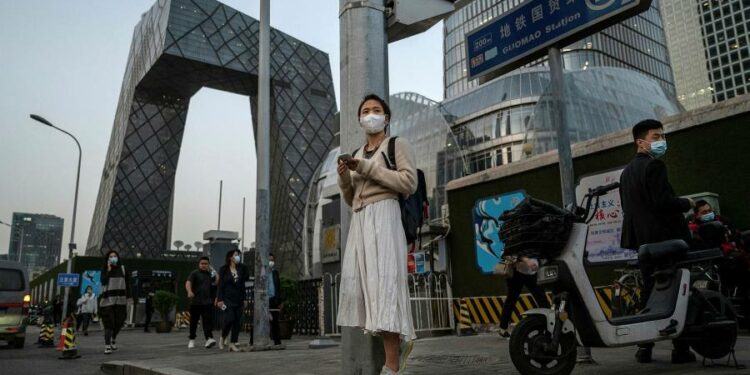Hong Kong-based asset manager Anatole has reduced its exposure to China to almost zero and will reallocate funds to US companies, as it warned the world’s biggest emerging market has become a “dry deserted land” for investors.
Anatole had focused its investments on long-term bets on Chinese companies since it was founded in 2016. But in a letter to investors this week, seen by the Financial Times, Anatole chief investment officer George Yang apologised for recent losses incurred by the fund due to its “misjudgment on China”.
Yang said: “The most skilful hunters would still suffer in a deserted dry land . . . we need to go back to the first principle of choosing hunting grounds: deploy capital to where we see the longest duration and the greatest companies.”
The asset manager, whose flagship long-short equity fund manages around $2bn, according to Bloomberg, is one of a multitude of investors that have suffered steep losses as Chinese companies on global markets have plunged to near record lows in the past year.
MSCI’s broad measure of Chinese equities has lost almost 40 per cent of its value over the past year in US dollar terms.
In November 2020, Beijing kick-started an abrupt and wide-ranging regulatory crackdown when it torpedoed the $37bn blockbuster initial public offering of Chinese payments group Ant at the eleventh hour.
Since then, president Xi Jinping has clamped down on sectors ranging from video games to education, and unveiled anti-monopoly and data security measures against some of China’s largest technology companies, as he tries to reshape the country as part of a “common prosperity” drive.
The crackdown has divided investors. Some international investors believe the common prosperity policy has heightened the risk of continued government interference in the private sector. They have declared China ‘uninvestable’ and headed for the exits.
Others are more sanguine, arguing that government intervention in China is nothing new and does not derail longer-term structural trends, such as an emerging middle class of consumers. Baillie Gifford’s James Anderson, a prominent China bull, has urged investors not to “give up on China.” Other foreign investors in the country, including Bridgewater Associates founder Ray Dalio and Howard Marks, co-founder of distressed asset manager Oaktree Capital Management, argue that their long-term horizons help them ride out short-term jitters.
Still, investors have additionally grown concerned that worsening tensions between the US and China could result in Chinese companies being kicked off New York exchanges.
Anatole’s chief operating officer Gary Lee said the fund was “structurally positive on China” and that its “scaling back on China was temporary”. “This is a situation we’re adapting to,” he added. The letter to investors said: “Even though we are looking at and investing in more US companies, we will still be able to selectively unearth opportunities with pure Chinese companies, wherever they may be listed”.
Boutique fund manager Aubrey Capital, which has $1.4bn in assets under management, has meanwhile been cutting exposure to China within its emerging markets fund. Last year it slashed exposure to China from more than 50 per cent of the fund to around 30 per cent. “We had a lot of exposure to ecommerce and education, both of which were caught in the crosshairs of regulatory changes,” said Rob Brewis, portfolio manager.
This year, Aubrey has kept China exposure at around 30 per cent of the consumer-focused fund. Brewis said he had found more compelling opportunities to deploy capital in south-east Asia and India.
“The Chinese consumer is not in a great place because of lockdowns. The question is how long this disruption lasts.”











